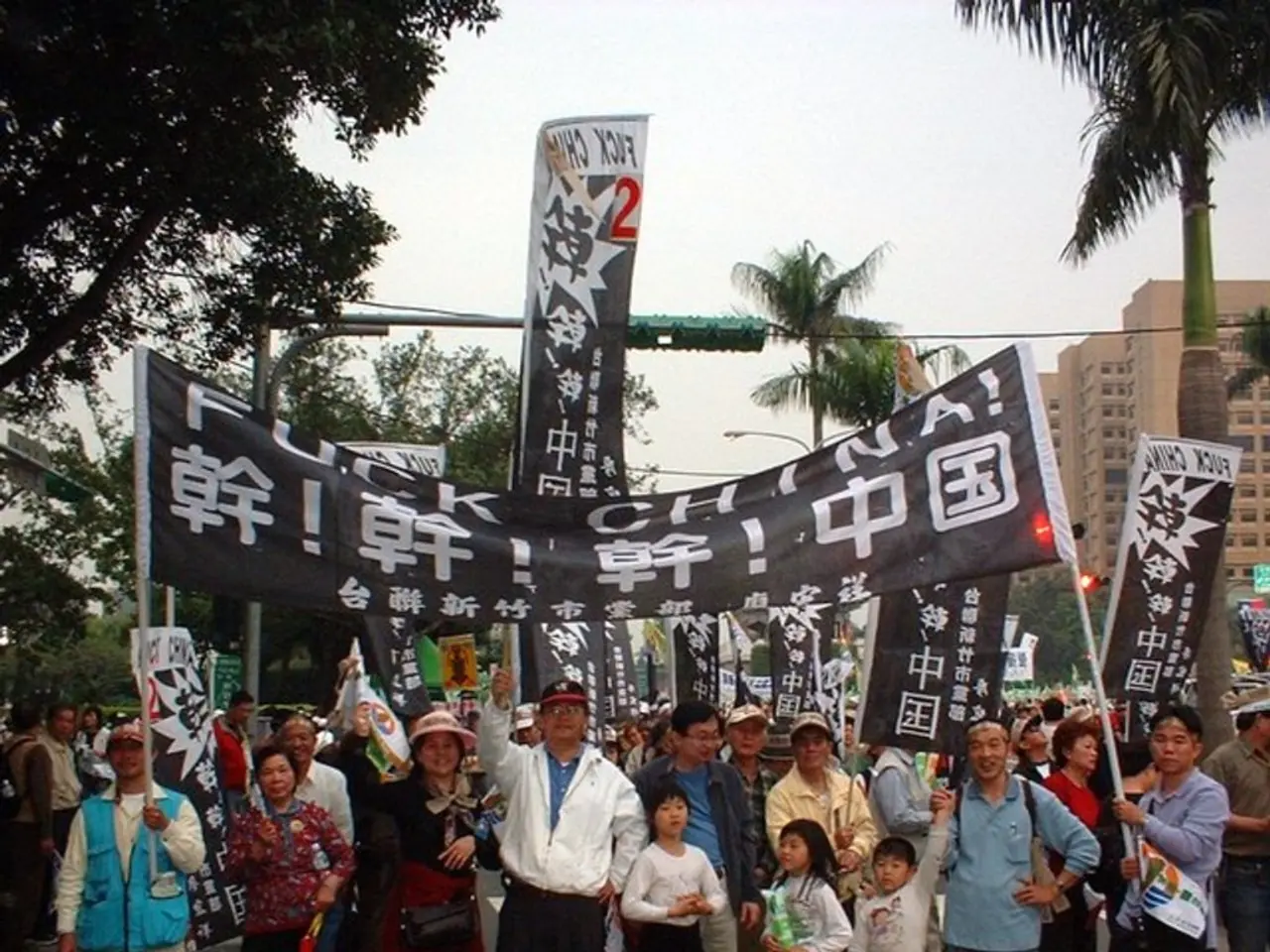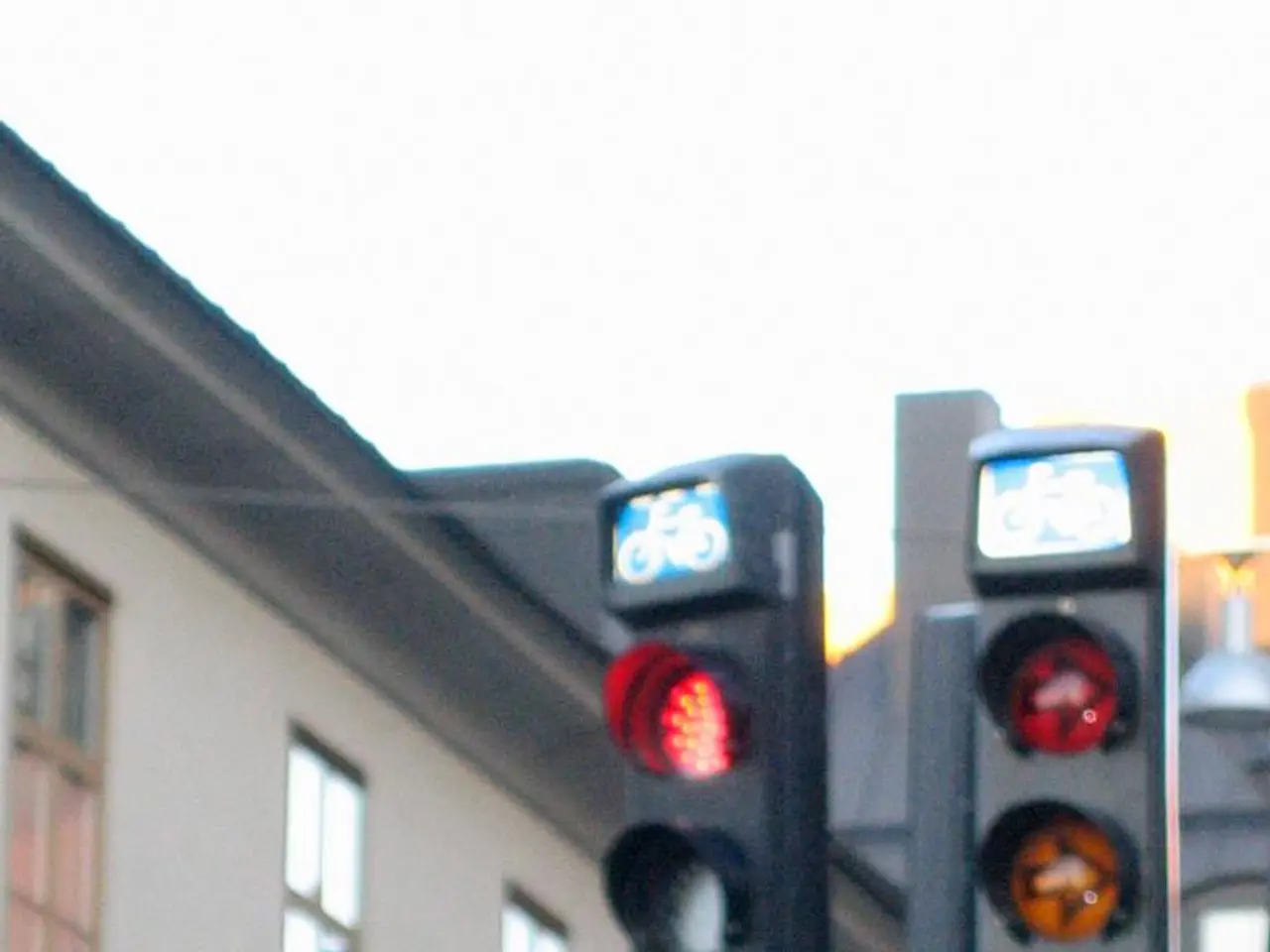Protesters from Greenpeace hinder gas drilling operation to hamper gas extraction process - Protesters hinder gas drilling location, led by environmental group Greenpeace.
In the picturesque region of Upper Bavaria, a contentious gas extraction project in Reichling has sparked significant community concerns and environmental opposition. As investigations and debates continue into mid-2025, the project, scheduled for June 2025, has become a focus of political and environmental scrutiny.
Timeline and Investigation
The planned commencement of gas drilling in Reichling, Upper Bavaria, is set for June 2025. Since the project became public, there has been increasing opposition from environmental groups and local community members, who highlight the risks to the region’s natural landscape and broader climate objectives.
The Bavarian government supports the drilling plan, framing it as part of regional energy sourcing efforts amid Germany’s ongoing energy transition. However, this stance conflicts with the government's stated climate neutrality goals for 2045.
Community Concerns
The local population and activists emphasize that the drilling endangers the idyllic character of their homeland and may cause environmental damage such as land degradation, risks to water supplies, and increased fossil fuel dependence. There is broader criticism that continued investments in fossil gas infrastructure contradict Germany’s climate targets and lock in long-term carbon emissions, making the energy transition more difficult.
Wider Context
The drilling is part of Germany’s and Europe’s search for alternative gas sources following reduced Russian pipeline gas imports since the Ukraine conflict began. However, this strategy has sparked heated debate because it appears to increase fossil fuel reliance rather than accelerate renewable adoption.
Greenpeace and other environmental organizations have released reports criticizing the German federal government’s gas policies, which include projects like Reichling’s drilling, as detrimental to climate protection efforts and economically risky given underutilized LNG terminals in Germany.
As of now, no detailed public investigation reports or legal actions directly related to the Reichling project have been found. However, the issue remains within the ongoing political and environmental scrutiny of Germany’s gas infrastructure expansion policies.
The Future of Reichling's Gas Extraction
The Energy Project Lech Kinsau 1 GmbH, 80% owned by MRH Mineral Oil Raw Material Trading GmbH and 20% by Genexco GmbH, plans to extract natural gas over a period of ten to fifteen years if the test drilling is successful. The controversial natural gas drilling is scheduled to start in the municipality of Reichling, near Lake Ammer, though the exact date remains undisclosed.
Greenpeace and other environmental associations have been protesting against the gas extraction in Reichling since the plans became known. The project is highly controversial in the community and among environmental and nature conservationists, with concerns about environmental damage to drinking water and negative impacts on real estate prices and tourism.
The police were present during the protest but did not intervene, and the Criminal Police in Fürstenfeldbruck has taken over the investigation. The gas extraction in Reichling is planned to start "next week" according to Reichling's mayor Johannes Hintersberger (CSU). Greenpeace calls on Bavaria's Minister of Economic Affairs Hubert Aiwanger (Free Voters) to stop all further gas drillings in Bavaria.
The International Court of Justice's legal opinion obliges all states to do their utmost to achieve the 1.5-degree target, and the drilling in Reichling contradicts this. The exact date for the start of drilling is still open and requires notification from the company to the authority and confirmation of technical flawlessness from the government of Upper Bavaria. Crane parts and special tanks for storing hazardous liquids have already been delivered to the site.
- The contentious gas extraction project in Reichling, Upper Bavaria, falls under the jurisdiction of the European Community countries, as it involves energy policy issues related to the sourcing of alternative gas sources and the promotion of renewable energy.
- The planned gas extraction in Reichling, despite its support by the Bavarian government for regional energy sourcing and the energy transition, poses a challenge to the EC countries' environmental policies, given the potential risks to the environment, climate objectives, and long-term carbon emissions.
- As the drilling in Reichling moves closer, environmental organizations like Greenpeace are focusing on the financial aspect of the project, questioning its economic viability in the face of underutilized LNG terminals and Germany's stated economic policies aimed at mitigating climate change and adopting renewable energy.




